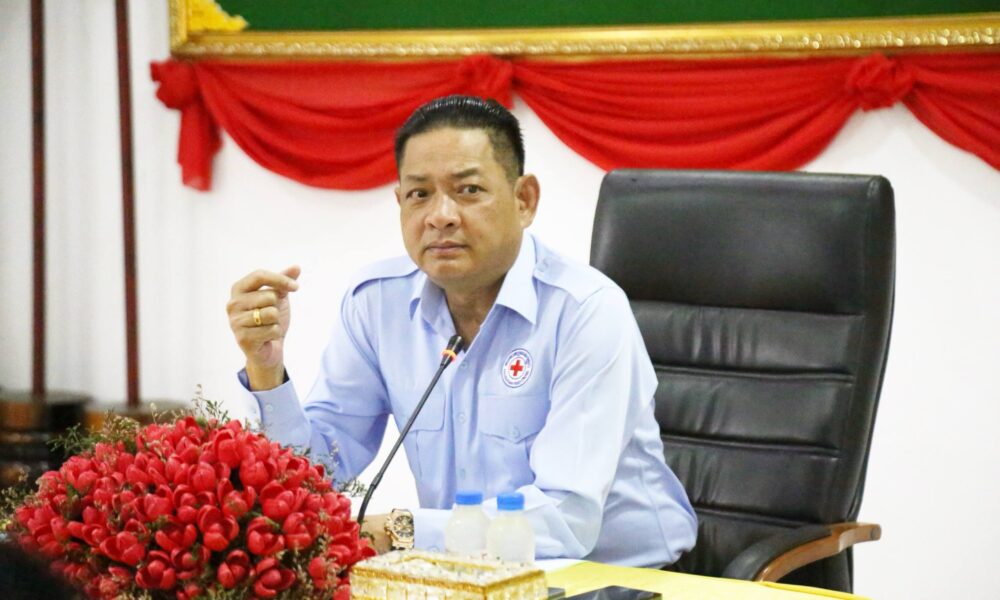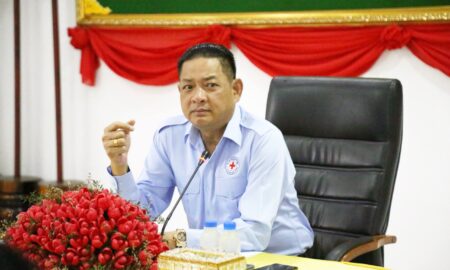Mutellip Toxtiroza got his first job at the age of 22. He was hired as a guard by the Jinken Farming Group, a subsidiary of state-owned enterprise (SOE) Tianjin Food Group, when it opened in Yutian, a county in Xinjiang Uygur Autonomous Region, in 2018.
“I wanted to find a job close to home and then I heard they were hiring local people,” Mutellip said. “I had no diploma or technical training so a guard’s job was good enough for me at that time.”
In less than six months, the proactive young man had impressed his bosses and his life has changed.
Projects and technology
Chen Yuechao, deputy general manager of the company, described how Mutellip caught his eye.
“Our company’s main business is mutton sheep breeding,” he said. “One day, a cleaning machine for the shed stopped working. Mutellip saw that and came to help. He went under the machine and found the chain was broken. There was hardly enough space for him underneath and it was dirty. Still he did it though it was not his job.”
Chen began to watch the young guard and found he was keenly interested in mechanical maintenance. Chen then started to ask him to come and observe when the machines were being repaired or cleaned. Mutellip watched and learned fast and was appointed as a technical staff responsible for electrical and mechanical maintenance.
He excelled at the job and after one year, following training, became a certified electrician and welder. Now he trains seven apprentices, one of whom is almost twice his age.
“I would dream of doing something significant in the past but I had no money or professional skills,” Mutellip said. “When I worked as a guard, I earned 1,500 yuan ($220) per month. Now I have a skill and my salary is almost double with a bonus.”
Still more changes are in the offing for him. Because of his excellent work, the company wants to promote him. However, he wants to start his own business next year. Armed with his new certificate, he plans to open a repair shop.
“The income may not be as stable as what I have now, but to have my own business is more exciting. I want to be my own boss,” the ambitious Mutellip said with a smile.
Chen knows about Mutellip’s plan and is happy to see the changes in the past two years. “That’s why we are here,” he said. “We bring projects and technology, and people seeing that want to join us. We did not have any local mechanical maintenance worker in the beginning; now we have a team.”
Chen is from Tianjin, a coastal city in north China. He never thought he would be working close to the Taklimakan, China’s largest desert. He and five others were assigned to Yutian in 2018 to build the mutton sheep farm. At that time he had been married for just two years and his child was 1 year old.
“We were told that the company would send some management and technical staff to Xinjiang to help the people there upgrade the mutton sheep industry. I applied and attended the training,” Chen said. “I knew the climate, totally different from that of Tianjin, is dry and windy, but I wanted to be part of the national poverty alleviation drive and my family supported me, so I came.”
The farm was built on wasteland covered with reeds. Today, 65 breeding sheds stand there. It has an annual stock of 25,000 ewes, which give birth to 63,000 lambs every year. It is a comprehensive base for breeding, meat packaging and other services.
Mutellip’s family has also benefited from the company. His father is a breeder who had some indigenous sheep. When Mutellip saw the company introducing pedigreed sheep from Australia, he suggested to his father that they follow suit since the imported sheep breeds and grows faster.
Today his family has more than 100 mutton sheep. His brother is studying professional breeding technology in the company. The family is one of the 2,500 poor ones in the area that rose out of poverty with the help of an SOE.
“We are proud of what we have done here, establishing a modern mutton sheep farm and helping local farmers breed sheep scientifically and efficiently,” Chen said. At the end of this year, he will finish his two-year tenure and return to Tianjin.
Although Chen is among the forerunners of the Jinken Farming Group, he was not the first to come to Yutian. “The sheds had been built and the office and dormitories were ready before I came. But when Yang Jianli, our general manager, arrived, there was nothing. They did not even have a room and had to live in the sheep shed for about 20 days.”

Starting from zero
Like Chen, Yang is also from Tianjin. The staff who come to work in Xinjiang can go back to their homes in Tianjin once every three months but this year, Yang has not taken any leave since mid-January, not even during the Spring Festival, a time of reunion for all Chinese families.
“China has vowed to eliminate absolute poverty by the end of 2020. As the staff of an SOE, we have our responsibility and goals. Our work was disrupted by the novel coronavirus epidemic, so we have to catch up and finish the work,” he said.
Yang recalled the time when he started from scratch, developing infrastructure and local connection. To win local people’s support, he and his colleagues came up with several business ideas, including the Free Ewes and Paid Lambs scheme.
The company gives free ewes to poor families and provides technical support to ensure the ewes on average give three births in two years. Then the company takes one lamb born to each ewe while the farmer keeps the rest.
The Mutellip family was one of Yang’s first six pilot sheep breeders in the town.
“Mutellip saw our imported sheep produces better mutton and suggested his father buy imported sheep. But his father scoffed at the idea. When I heard that, I went to have a conversation with his father,” Yang said. “I told him I could give him a few ewes free, and then he could make his decision.”
“One single ewe brings an annual 802 yuan ($117) to poor households,” he added.
This year, the company raised 63,000 sheep, creating more than 6,000 jobs. The average yearly earnings were 24,000 yuan ($3,516).
Mutellip has not only risen from poverty, but also from a life without goals. Today he is on the way to developing his own business. Yang said he and the company will support Mutellip in whatever decision he takes.
“We want everyone here to have a good life. Helping local people to develop their talent is an important part of poverty alleviation,” he said. (Reporting from Hotan Prefecture, Xinjiang Uygur Autonomous Region)
“We want everyone here to have a good life. Helping local people to develop their talent is an important part of poverty alleviation.”
(Reporting from Hotan Prefecture, Xinjiang Uygur Autonomous Region)




























